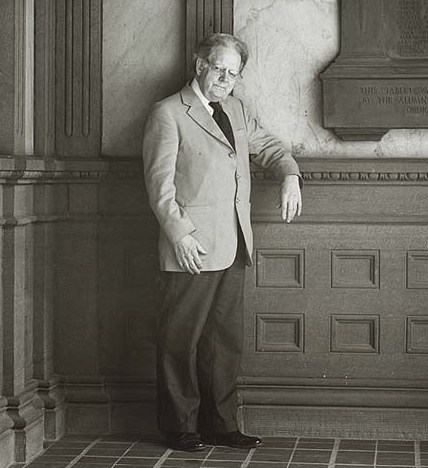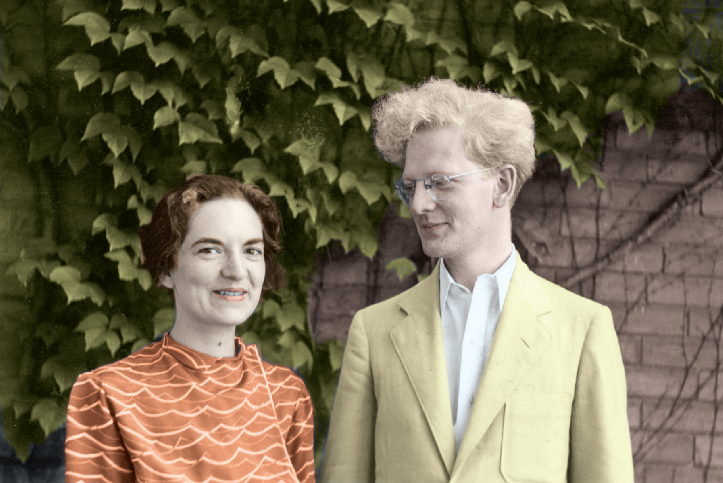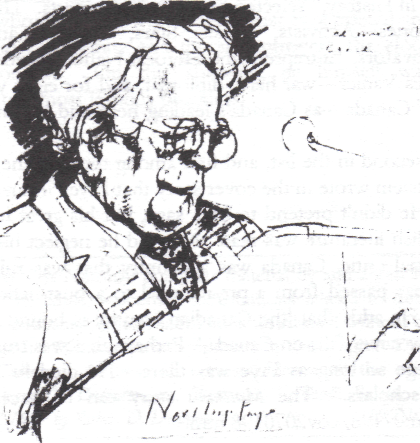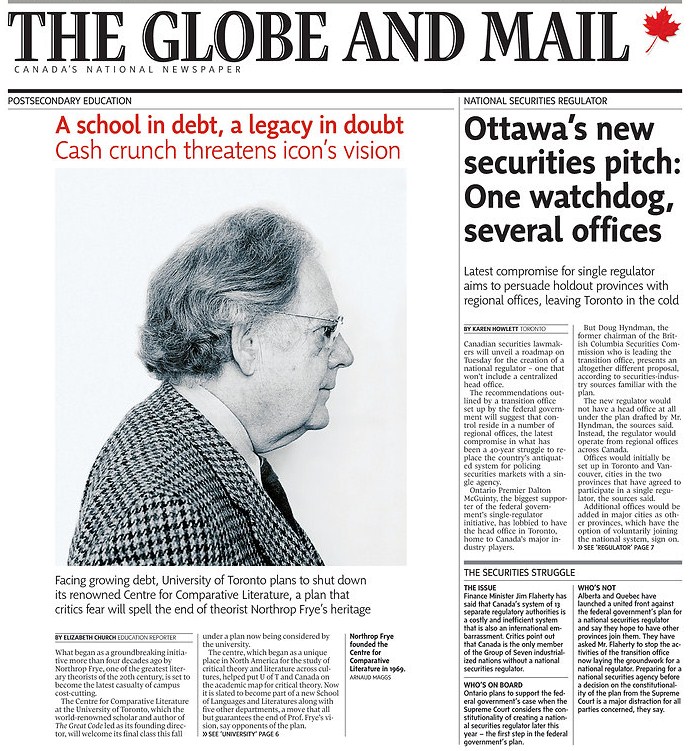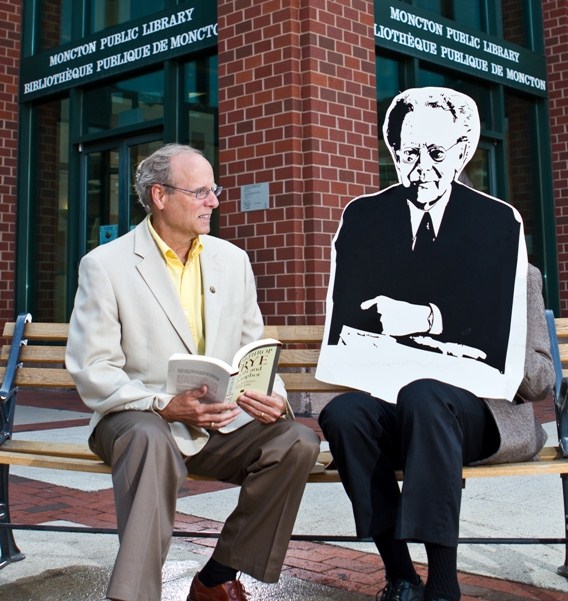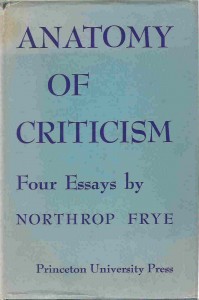
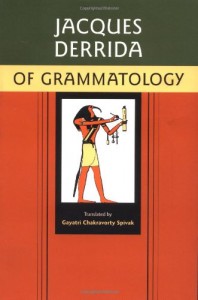
Tomorrow is Frye’s birthday, and the day after that is Derrida’s. It’s a good time to reflect on their fateful collision as two leading figures in literary criticism a generation ago.
From the time of the Anatomy Frye maintained that criticism should be a system of interpenetrating rather than conflicting modes. But as poststructural critics came to take center stage in the 1970s and 1980s, Frye grew less sanguine about realizing his critical ideal. In his last major works, Words with Power and Myth and Metaphor, he began to take an oppositional stance toward poststructuralism, especially to cultural criticism and deconstruction. But as one might expect from a critic who very seldom argued in a public way against critical views different from his own, his critique of these two postmodern approaches is relatively muted. This is not the case, however, in Frye’s unpublished notebooks, where his critique of, say, Derrida, is explicit and direct. The degree of Frye’s opposition to cultural criticism (or what he calls ideology) and deconstruction is almost always sublimated or displaced in what he chose to publish; in the notebooks, it is not. The scores of entries that Frye makes in his late notebooks about poststructural critical positions reveal the anxiety he has about his own position in the critical world, as well as his concession that the model of interpenetrating critical visions is more or less doomed. And they reveal directly what is at times almost concealed in his late published work.
Material that follows is from Frye’s notebooks. The first section is from an unedited version of a notebook Frye wrote in the late 1980s. After paragraph [732] the entries come from several of Frye’s other notebooks.
On Derrida, de Man, Foucault, Deconstruction, Marxist and Feminist Criticism, Ideologies, and Other Varieties of Post-______ Talk from the Late Notebooks.
[4] The story element in myth (mythos) links it to folktales. The function of literature is to recreate the myth behind the ideology. All poets are affected by the ideologies of their time, but criticism discovers layers of meaning (Hopkins’ underthought and overthought, Derrida’s deconstruction) distinguishing the two. decon discovers layers of meaning
[7] The language of ideology, being thesis-language, contains its own opposite. Ideology functions properly in a tolerance that tries to contain the opposite. Dogmas that exclude the opposite are pernicious. The worst are those that back up political dogma with a religious or quasi-religious one. ideologies of exclusion
[28] It’s ironic that Marxism, which tried to define ideology as the rationalizing of non-Marxists, should have turned into the one movement of our day that absolutizes ideology. absolutizing of ideology in Communist movements.
[44] Criticism approaches a literary work which is a metaphor-cluster made explicit. Why do we need the critic? Because there’s so much implicit in the metaphor-cluster that he didn’t make explicit. Mainly, of course, the relation of contexts, to other cultures, of words. “Deconstruction” is such a dreary negative word for all this. “Deconstruction” is “a dreary negative word” for the process of making explicit what in the poem remains only implicit, the relation of the contexts of words.
[63] I’ve often noticed how stories with a strong mythical (plot) emphasis are placed in a framework, or are assumed to be told to the writer, or discovered by him in a drawer, etc. Look up that storm story, where there are four or five wrappings. It’s as though we were supposed to dig for the story underneath the ideological surface: a model of what “deconstruction” ought to be.
[79] So many dreary disputes in 20th c. French literature where we have non-Marxist writers saying they just want to be apolitical and neutral, with the Marxists telling them that “neutral” statements are just as political ones. Of course they are. They’re the other half of the Marxist ideology, and just as essential to it.
[93] I am told that the structure of the Anatomy is impressive but futile, because it would make every other critic a Gauleiter of Frye. People don’t realize that I’m building temples to––well, “the gods” will do. There’s an outer court for casual tourists, an inner court for those who want to stay for communion (incidentally, the rewards of doing so are very considerable). But I’ve left a space where neither they nor I belong. It’s not a tower of Babel: that tries to reach something above itself: I want to contain what, with a shift of perspective, contains it. Why am I so respected and yet so isolated? Is it only because I take criticism more seriously than any other living critic?
[97] It seems more natural to begin with myth & concern rather than with metaphor & identity. But it’s involved with this whole “writing” nonsense. As soon as you “see” a joke it’s written, in some sense or other: what you hear up to that point is unintelligible except as sound, hence the musical metaphors. And every narrative is a displacement of a metaphorical diagram, much as the 5th Symphony is a displacement of the tonality of C minor. When one applies such a conception to Sartor Resartus, say, one can make the link with my deconstruction as an attempt to get past ideology to myth. [Frye is actually deconstructing ideology in an effort to get past it to myth, and he says as much in one notebook entry.]
Continue reading →
